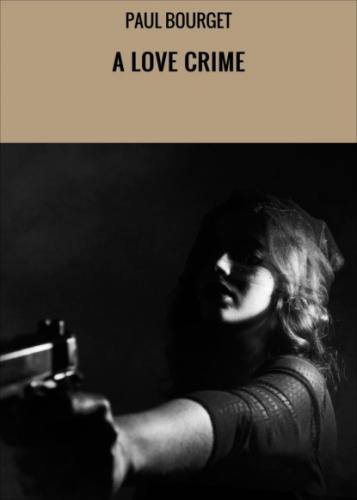scorned herself for not loving him enough, since she did not love the
sufferings of which he was the cause, and, sustained by the thought that
she was doing it for him, it was with something like an impulse of pride
that she held out her forehead to her husband's kiss, and said
gracefully:
"That's just like men; they must be paid, and immediately too, for doing
their duty."
CHAPTER II
It was half-past eleven o'clock when Armand de Querne left the house in
the Rue de La Rochefoucauld. The wind had swept away all the clouds, and
the sky was filled with stars. "What a beautiful night!" said Armand to
himself; "I shall walk home." It was a long way, for he lived in the Rue
Lincoln, in the upper part of the Champs-Élysées. Here, on the second
floor of a wing projecting upon a garden, he had rooms which he had once
amused himself with furnishing in quaint and exquisite fashion with all
kinds of old-fashioned trifles. But how long had he ceased to spend the
evening in this "home?"
He was following the pavement of the Rue St.-Lazare, which, after quite
a narrow and slender beginning, suddenly, like a river swelled by
tributaries, widens after the Place de la Trinité, when it receives,
one after the other, the flood of passengers and vehicles drifting
through the Rue de Chateaudun, the Rue de la Chaussée-d'Antin, and the
Rue de Londres. Cabs were plying, omnibuses were changing horses, the
crowd was surging. Sometimes a girl came out from the corner of a
doorway, and with obscene speech accosted the young man, who put her
away gently with his hand.
Was it the contrast between the intimacy of the little drawing-room and
the swarming infamy of the pavement? Armand felt deeply melancholy. He
could not help seeing Alfred's face again in thought, with Helen's close
beside it. Yet, was he jealous? No. Pictures of childhood came back to
him as they had done just before, but with increased precision, showing
him Chazel dressed in the uniform of the "Vanabosteans"--a small jacket
similar to that of the Barbistes. They always went side by side in the
ranks. Poor Chazel! he was not rich. The head of the establishment had
taken him as a foundationer, with a view, to making a show-pupil of
him--a machine for winning prizes in competitions. How many times had
Armand paid for him at the little wicket, when the porter sold to the
pupils sweetmeats, fragments of iced chestnuts, cakes, and Parisian
creams--tablets of chocolate having a thick and oversweet liquid inside!
They had gone through all their classes together from the fourth up, and
had together passed through the evil days of the Commune, when, on
returning both of them from the country, after the siege, they found
themselves blockaded in Paris. Alfred had afterwards entered the École
Polytechnique. And when he came on Wednesdays and Sundays to visit his
old schoolfellow, who had already crossed the Seine and begun to lead
the life of a rich and idle young man, how ludicrous he was in his
military dress, embarrassed by his sword, not knowing how to set his hat
upon his head, and invariably scarred with clumsy razor-cuts!
While Alfred was at the School of Bridges, Armand was travelling. He had
gone round the world in the society of an amateur artist. On his return
he found that his friend was no longer at Paris. The letters passing
between them became rare. Could they have told why? Armand perhaps
might. There was only one point left in common between Alfred's life and
his own. Alfred had married Mademoiselle de Vaivre. They had made a trip
to Paris, and Armand well remembered how he had been deliciously
surprised by Helen's distinguished demeanour, when he had expected to
find her awkward, pretentious, and a fright. But at this period he was
taken up with another woman, little Aline, a mistress of his for whom he
had cherished the only genuine passion of which he was capable--painful
jealousy blended with delirium of the senses.
Later on, some one had spoken to him of Helen Chazel, and told him ugly
stories about her. And who was it that had done so? Another
school-fellow--big Lucien Rieume, who had been educated at the Vanaboste
establishment like Alfred and himself--during one of these
_tête-à-tête_ luncheons when an opening of the heart usually
accompanies that of the oysters between two college companions; and
Lucien--cordial, indiscreet, intolerable--had talked a great deal,
pouring out pell-mell whatever he knew concerning former friends. Armand
could again hear him chuckle, leaning forward somewhat with kindled eye
and humid lip:
"Poor Chazel, he hadn't a head worth a fig! It seems that his wife is
tricking him. I heard the gentleman's name: Marades, Tarades--just wait
a moment--yes, De Varades, an artillery officer. It was the talk of
Bourges. He was never out of the house."
It was an unfortunate trait in Armand's character that he was unable to
withstand the tempting of mistrust. When evil was asserted to him, he
preserved an indelible impression of it. He did not altogether believe
in it, and yet he believed in it sufficiently for a suspicion, and a
busy suspicion, to be planted within him. When the Chazels had come to
settle in Paris, ten months previously, and Armand had begun to interest
himself in Helen, the scruples of an old friendship might perhaps have
been stronger than his freak of curiosity if big Rieume's words had not
risen before his recollection.
"Really," he had said to himself, "it would be too foolish,"--a criminal
phrase which serves men for the justification of many a dastardly
action. Helen had not been slow in displaying towards him a kind of
passion which he had attributed to the
